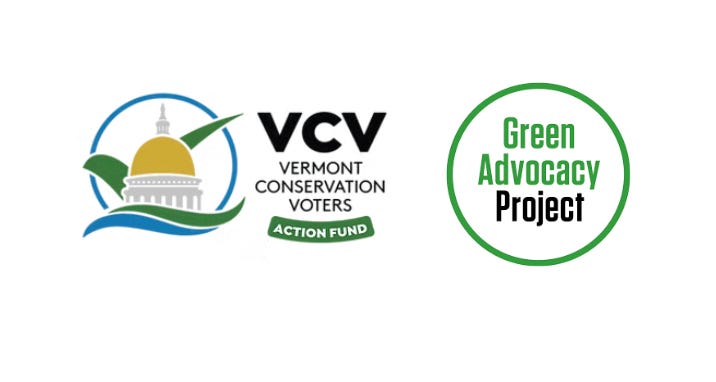Vermont Was Financially Prepared for the Koch Brothers' Push Against Climate Action
No doubt the Koch Brothers could dig much deeper into their coffers to raise the stakes, but to date their actual investment to oppose Vermont’s climate initiatives stands at about $63,000.

National Spotlight on Vermont’s Climate Fight
On August 28, 2025, VTDigger and Grist published a joint investigation detailing how Americans for Prosperity, the Koch-funded political network, has ramped up its efforts in Vermont to oppose state climate policies. The reporting shed valuable light on AFP’s tactics — mailers, digital ads, and lobbying — and underscored the group’s long-standing role in fighting climate legislation nationwide.
But it also raised new questions: Was Koch money really the decisive force in turning Vermonters against the Affordable Heat Act, or were the roots of opposition closer to home?
Vermont’s Climate Ambitions
By the time AFP arrived in 2023, Vermont had already committed itself to one of the most ambitious climate agendas in the nation.
The Global Warming Solutions Act (GWSA) of 2020 bound the state to strict emissions reductions — 26% below 2005 levels by 2025, 40% below 1990 by 2030, and 80% by 2050 — and allowed citizens to sue if targets weren’t met.
Clean energy and weatherization programs were expanding, with Efficiency Vermont and state incentives pushing heat pump installations and home retrofits.
The Affordable Heat Act (Act 18), passed in 2023, was the centerpiece. It sought to cut emissions from heating fuels by requiring fossil fuel importers to fund clean alternatives or buy credits to support weatherization and electrification. Supporters saw it as a market-based way to hit the GWSA’s mandates while making homes more energy efficient.
Opponents, though, argued it would raise fuel costs, burden low-income and rural families, and was too complex to administer. Debate was already fierce before AFP entered the picture.
A State Ready for a Fight
When AFP launched its Vermont campaign in 2023, many feared a national dark-money group would overwhelm local advocates. Instead, Vermont’s climate movement was financially prepared.
Proponents: The Green Advocacy Project poured $180,000 into the Vermont Conservation Voters Action Fund, which reported another $218,500 in spending to boost pro-climate candidates. Together, they invested about $398,500 in the 2024 cycle.
Opponents: AFP spent >$63,000 on ads and mailers in 2024 and another $13,425 in 2025. Local dealers, through Vermonters for Affordable Heat, added about $11,300. In total, opponents spent about $90,000.
The picture that emerges is not one of climate advocates being outgunned, but of two sides building serious campaign warchests — with the climate side spending nearly five times more. No doubt the Koch Brothers could dig much deeper into their coffers to raise the stakes, but to date their actual investment to oppose Vermont’s climate initiatives stands at about $63,000.
Why Vermonters Still Have Doubts
Despite that advantage, Vermonters remain wary of Act 18. Concerns persist about:
Projected costs, with estimates of billions over time and fuel prices up by as much as 58 cents per gallon by 2035.
Equity, with doubts subsidies will reach low-income households quickly enough.
Complexity, since the clean-heat credit system is untested.
Small-business anxiety, as fuel dealers fear compliance costs will flow directly to customers.
Governor Phil Scott captured the unease, saying he supports climate solutions “that help people, not punish those who can least afford it.”
Lessons for Vermont’s Climate Future
With ample support for Vermont’s Climate Initiatives to stave off the efforts of the Koch brothers, the challenge lies elsewhere: convincing Vermonters that ambitious climate policy can be implemented fairly and affordably. Until the Affordable Heat Act and similar measures answer those doubts, no amount of campaign spending — whether from AFP or from climate advocates — will likely secure broad support.



